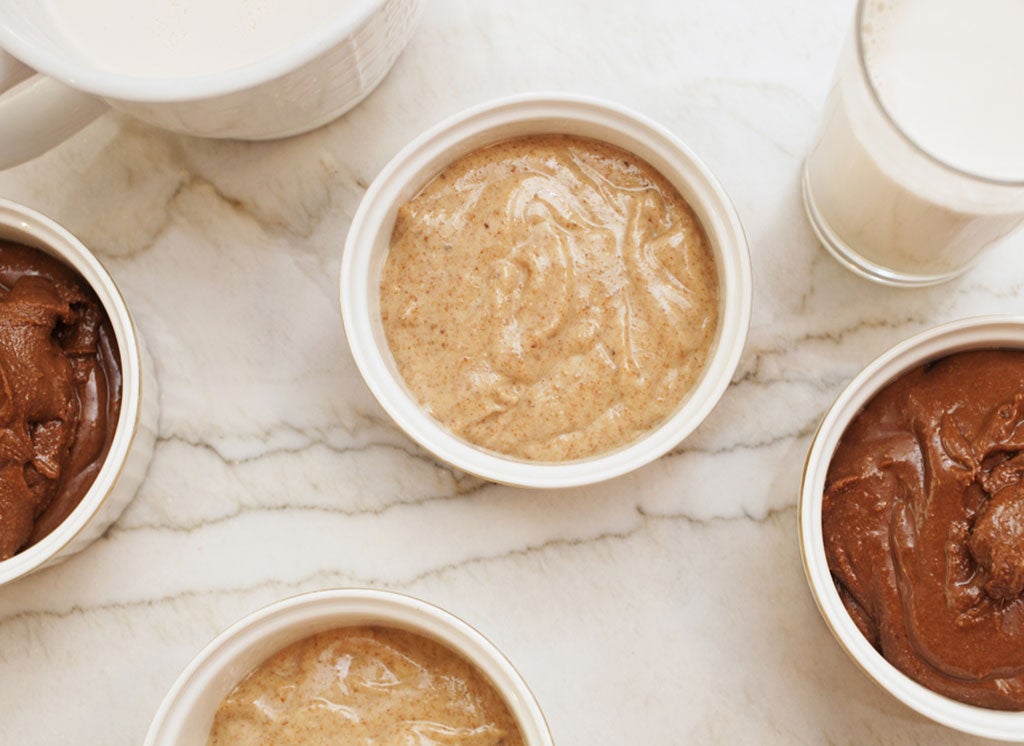Nut Butters 101

Nuts are fantastic for our health. Studies show that people who eat nuts benefit from lower cholesterol levels, satisfaction with fewer calories, increased protection against cancer, and better muscle and bone mass with aging. Even though they are high in fat, nuts contain mono- and polyunsaturated fats that have been shown in multiple large-scale studies to lower cholesterol and protect against heart disease. Consuming just one ounce of nuts in place of an equal amount of carbohydrate calories has been shown to increase overall health status and reduce the risk of heart disease.
Nuts are, after all, a natural storage device of plants, containing the highest concentrations of proteins, healthy fats, and other nutrients required for a plant embryo to thrive. It makes sense to including more nuts and nut butters in your diet, but there are notable differences in the nutrient composition of the most popular nut butters that we should know about! In the battle between almond, peanut, and cashew butter, which one is the best?
Almond Butter
The winner among these three popular nut butters, almond butter contains 26% more vitamin E, 3% more iron, and 7% more calcium than peanut butter. It also contains 50% more monosaturated fat and 25% less saturated fat than peanut butter. Almonds are the best nut source of vitamin E, a nutrient many people are deficient in. A quarter-cup serving of almonds provides 7.6 grams of protein—more than a large egg, which contains 6 grams. You will also find plenty of riboflavin, iron, potassium, magnesium, and fiber in almond butter.
Peanut Butter
By far the most widely consumed nut butter, a 1-ounce serving contains 15% of your daily requirement for vitamin E, 2.5 grams of fiber, 7 grams of protein, and plenty of calcium, copper, iron, magnesium, niacin, folate, and zinc.
Cashew Butter
At 5.6 grams of protein per serving, cashew butter is lower in protein than peanut butter, but it’s richer in other nutrients, including iron, copper, and phosphorus. All of the fat in cashew butter is heart-healthy unsaturated fat, which is excellent news for anyone who enjoys the smooth, creamy taste as an alternative to peanut butter or conventional butter. Cashew butter contains about half the sugar of peanut butter and it frequently contains less additives.
Although almond butter comes out the clear winner in this competition, peanut butter and cashew butter tie for a close second place. Any nut butter is a health-food warrior compared to real butter or oil.
Money-saving tip: Purchasing nut butters can be expensive, so I recommend making your own in a food processor if you are on a budget (simply Googling how to make your own nut butter will yield numerous blogs with easy instructions) or purchasing in bulk online. I have found iHerb.com to offer the best prices for all of the above nut butters. Enjoy!